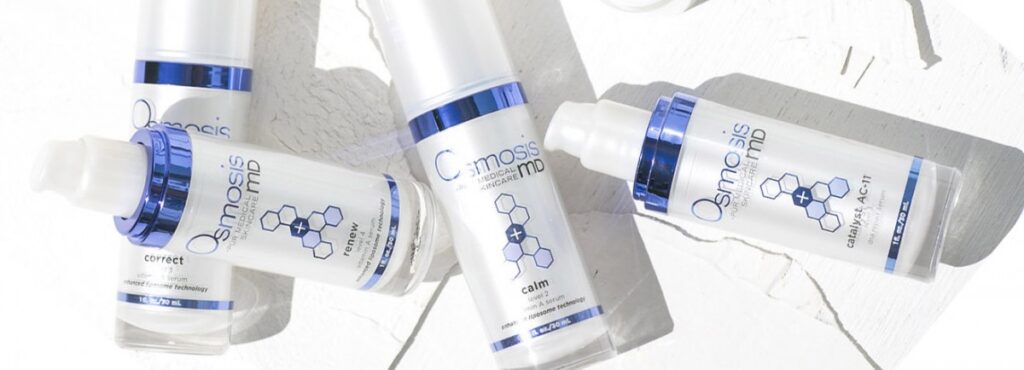I’m sure you have heard it before…’your skin needs Vitamin A’. Ok, great, but why? And which one? And how do I use it? Let’s talk Vitamin A – Retinols for your skin…. and keep it simple.
What is Vitamin A?
Vitamin A is commonly referred to as a ‘retinoid’. This is essentially the blanket term for all the different forms of vitamin A. You may have heard these terms before: retinoic acid, retinol, retinaldehyde, retinyl palmitate, tretinoin, adapalene, tazarotene…guess what? All vitamin A, just different forms and strengths, some natural, some synthetic, some prescription, some over the counter. Vitamin A – Retinols for your skin.
When it comes to choosing which one, stronger, or prescription, is not necessarily better. In fact, I recently read an article in the Aesthetic Surgery Journal in 2010. It concluded the evidence from numerous randomised control studies. All supporting the fact that Retinaldehyde is the most significant form of Vitamin A.
Retinaldehyde is your ‘gentle’ skin care friend
Retinaldehyde is a ‘gentle’ form of vitamin A, as it is very close to the type of vitamin A our bodies produce naturally, therefore not much processing of the ingredient needs to occur in the skin before it can be taken up by our cells, rendering it less irritating. Our Osmosis A serums, plus the Cosmedix Serum 16 all contain retinaldehyde as the key ingredient.
Higher concentrations of vitamin A, or forms that require multiple conversions in the skin before it can be taken up by cells, can leave the skin feeling irritated, dry, tight and inflamed, an unnecessary backwards step in any skincare regime.
What does Vitamin A do for your skin?
Vitamin A provides a myriad of benefits… so you really do want to be using it. In short, it normalises skin functions, tricking it into thinking it is younger! Seriously? Yes!!!!! This is why we’re crazy for Vitamin A – Retinols for your skin.
These benefits include:
UV protection – Vitamin A is NOT a sunscreen, let’s be clear. What it does do, is reduces the inflammation caused by UV damage and also inhibits some of the age related changes that occur due to UV radiation.
Cell renewal – It takes roughly 28 days for our skin cells to replenish themselves, and that is in a healthy, youthful skin. However, as we age, this process usually lengthens, with cell turnover becoming sluggish and the shedding of dead cells being less effective. Old cells, and a build up dead cells on the surface of our skin, leads to dull, lack lustre skin that can feel rough and appear mottled. The good news is, vitamin A is here to help, in two ways. Firstly, it stimulates the turnover of cells, encouraging better skin function, secondly it acts as a gentle exfoliator, removing the surface build up of dead cells, revealing brighter, more even toned and smoother skin.
Anti-wrinkles – Fine lines and wrinkles, and a loss of tone in the skin are a by-product of chronological and environmental ageing. These changes occur when the protein in our skin that provides strength and cushioning – collagen, is broken down and not produced at the rate it once was. Vitamin A helps to combat these changes by increasing the number of cells that produce collagen in your skin (fibroblasts), stimulating the existing fibroblast to produce more collagen and inhibiting the enzymes that breakdown our collagen.
It’s a three-way attack! Vitamin A – Retinols for your skin
Acne – The irregular shedding of cells is a contributing factor to pore congestion and the creation of acne. The regulating and stimulating effect vitamin A has on cellular turnover is great news for acne sufferers as it can help to alleviate these issues. Secondly, vitamin A works to normalise skin function and encourages uniform arrangement of cells in the epidermis, preventing the emergence of new pimples being formed.
Pigmentation – Uneven skin tone occurs due to ageing, UV exposure, hormonal changes and/or after the skin has experienced an injury which includes inappropriate use of harsh or toxic chemical laden skin care products. Vitamin A can help to alleviate the appearance of pigmentation disorders by gentle exfoliation and dispersal of pigment. As discussed before, vitamin A encourages exfoliation of cells, with this, pigmented cells may be removed more readily. Also, vitamin A encourages a more even distribution of melanosomes (pigment molecules) within the skin, avoiding clumping together of these, which appears as spots or discolouration on the skin.
Vitamin A – Retinols for your skin
How do I use Vitamin A?
It’s important to find a good quality vitamin A that is the appropriate type and strength for your skin. Not all creams and serums are created equal. You want a high-quality ingredient, in the right concentration. That will actually be able to penetrate your skin. Remember our skin is a barrier… and get to work deep in the layers where you want it. Have a good chat with a skin care professional. One that takes the time to examine your skin is the best way to go. Once you have found your vitamin A of choice, you start slow and build up. This avoids any sensitivities with your Vitamin A – Retinols for your skin, for example: every other night at first, and then nightly.
READ MORE ABOUT VITAMIN A – FACTS, FORMS, HOW TO USE & WHICH TO CHOOSE
**** WARNING *** If pregnant, thinking of being so or breastfeeding, please discuss the use of any Vitamin A serum with your doctor. We recommend that you cease their use during this period, as it is not known conclusively whether a developing fetus will be affected; the research is still happening.
Still not sure?
If you need more help or would like personalised advice, book now for your consultation with a skin care advisor. Offering information on what skincare products are best for you. Check out our range of in-clinic services today.
Otherwise fill in the Online Skin Consultation. Our skin care advisor will happily help you. Choosing the right treatments and products for your skin type or concern.
Check out our latest Specials!





Leave a Reply